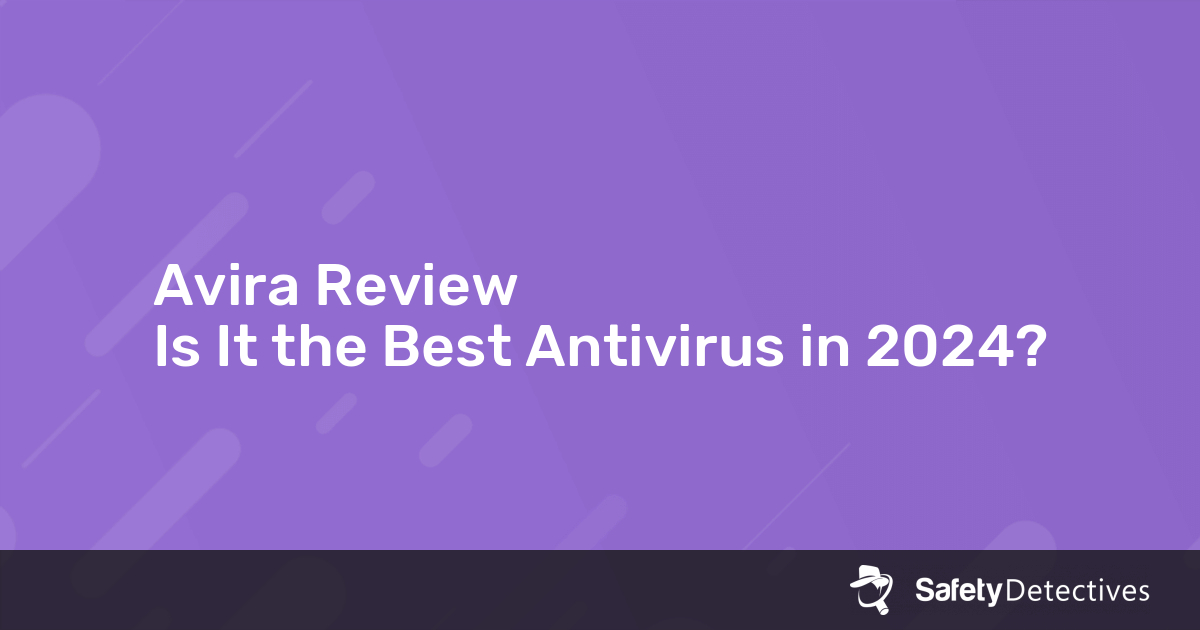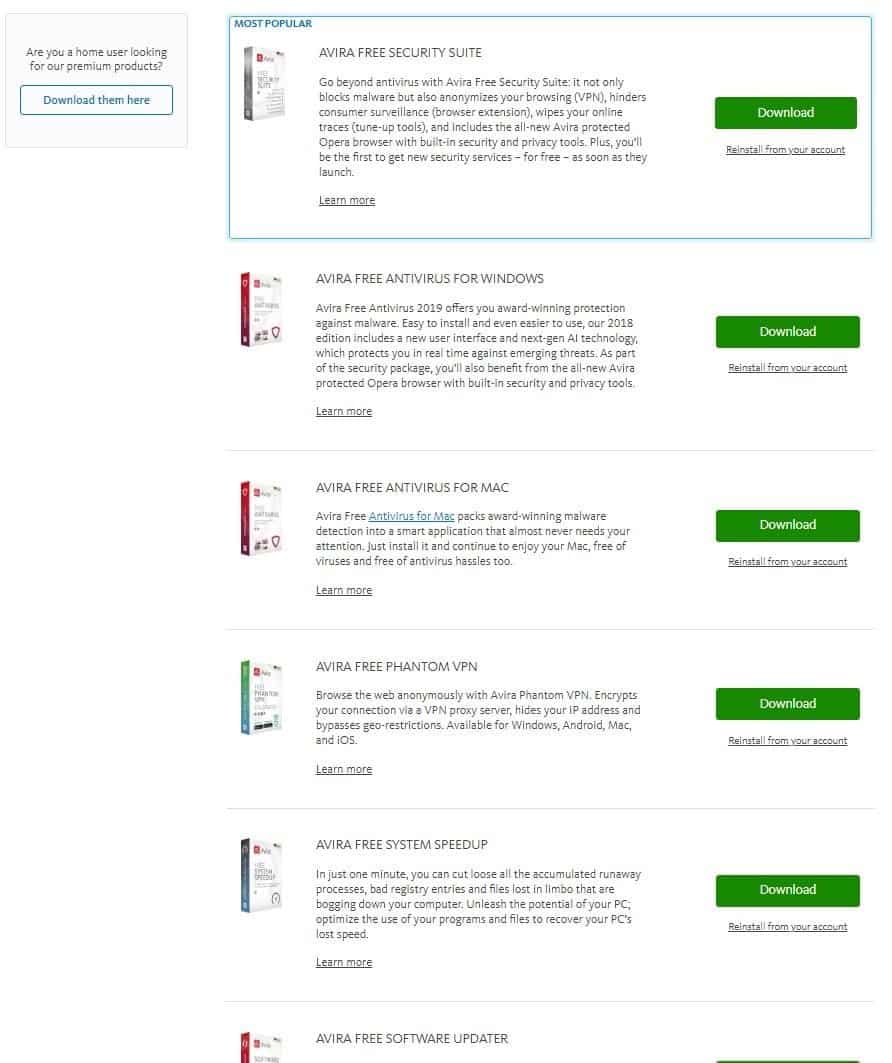

Interestingly, the linked page states "Note: for the product installation both files – Antivirus and Exchange - must be downloaded. The source domain is different, but the file was identical (when I checked). It's listed under "Avira Antivirus for Small Business". It's strange that a large international business would want to redact their name and contact information.Īfter searching through the raw HTML on Avira's official website, I found one place that they link to a file with the same bit-by-bit contents as the file you mentioned. Looking at, it is also registered via RegistryGate, also with all information redacted. Not a great way for anyone to instill confidence! According to RegistryGate's whois server, all information about that domain has been redacted by the unknown owner. Where did you find that link? Has Avira posted it anywhere on their official website stating that it is their free AntiVirus product for consumers (and is it just the Antivirus without all the undesired bloatware)? Are there any published hash values to verify the integrity of that file?Īccording to internet records, that site is registered via RegistryGate. Simply respond to this thread with verifiable credentials.Ĭlick to expand.Curious. I am willing to work with them to improve their product and resolve these issues and this pattern of behavior. I welcome a response from Avira by someone willing to acknowledge they represent that company. As such, I can no longer recommend Avira to anyone.

Does avira free security suite has antivirus install#
Upon looking at saved traffic logs, I also see it transmits data each time the user simply clicks on main interface elements as well as many times after it completes an on-demand scan via the context menu in Windows Explorer.Īvira makes a good antivirus tool, but unfortunately I have to conclude that they are willing to install unwanted software without the user's consent, and that this software may immediately transmit data without the user's consent. This is not necessarily a problem, since the definitions may be stored on cloud servers stored by one of those companies, but it is odd that it is transmitting data to servers owned by all three companies. I also noticed that Avira transmits data to Google, Akamai, and Amazon servers. Upon looking at saved traffic logs, I see that Avira sometimes transmits data via port 80, which is generally used for non-encrypted data (as opposed to port 443, which is generally used for encrypted data). Ironically, Avira has repeatedly warned people about Potentially Unwanted Programs, despite claiming that they are protecting people from them: This may be illegal in some jurisdictions. I still have the original installer downloaded from, and am willing to help by providing it or a checksum.ĭoing a little research, I now see that Avira has a history of installing unwanted software on people's systems without consent. I definitely had Avira Free Antivirus installed, and not the Free Security Suite.


Do you work for Avira? Please disclose your relationship with Avira in full.


 0 kommentar(er)
0 kommentar(er)
